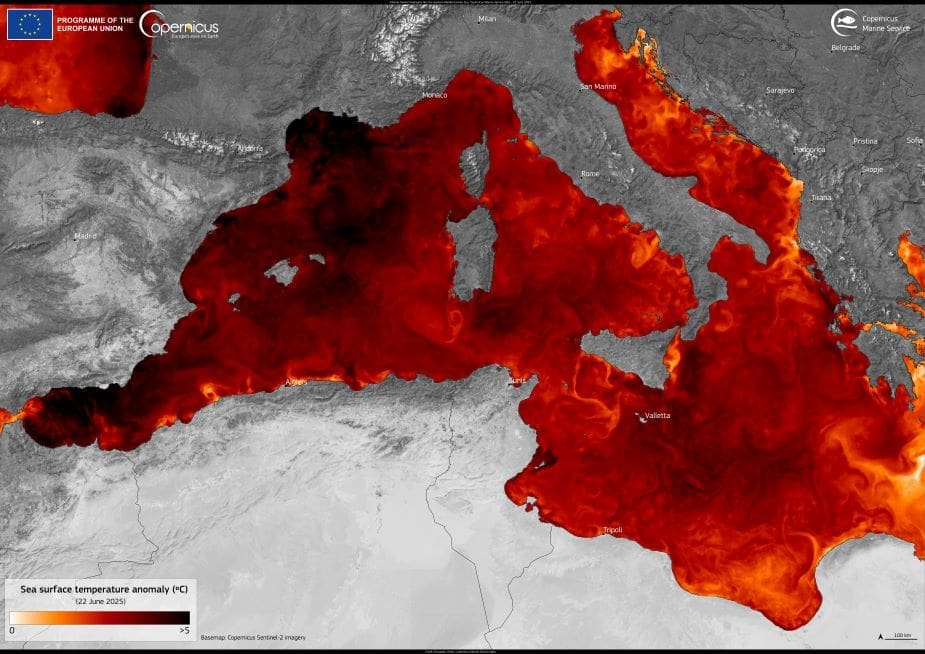A marine heatwave is underway in the Mediterranean Sea, with parts of the region experiencing sea surface temperatures more than 5°C above the seasonal norm. This data visualization, based on Copernicus Marine Service (CMEMS) records from 22 June 2025, reveals widespread temperature anomalies, with the most intense warming concentrated in the western Mediterranean basin – including the Balearic Sea and the Tyrrhenian Sea.
Marine heatwaves can have severe ecological and economic consequences. Elevated temperatures disrupt marine ecosystems, contribute to mass mortality events, and threaten fisheries and aquaculture. Coastal communities may also face increased risks from algal blooms and other cascading effects linked to prolonged ocean warming.

The image was generated using sea surface temperature anomaly data from CMEMS, which provides free and open-access information to support ocean monitoring. SST anomalies are a key indicator in climate science, offering insights into how marine systems respond to global warming. Regular tracking helps scientists anticipate extreme events and assess long-term changes in ocean conditions.
With the Mediterranean warming faster than many other parts of the global ocean, such episodes are becoming more frequent and intense. Monitoring these anomalies is crucial for improving forecasts, preparing for potential impacts on biodiversity, and guiding adaptation strategies for vulnerable coastal areas.
Featured image credit: European Union, Copernicus Marine Service Data



